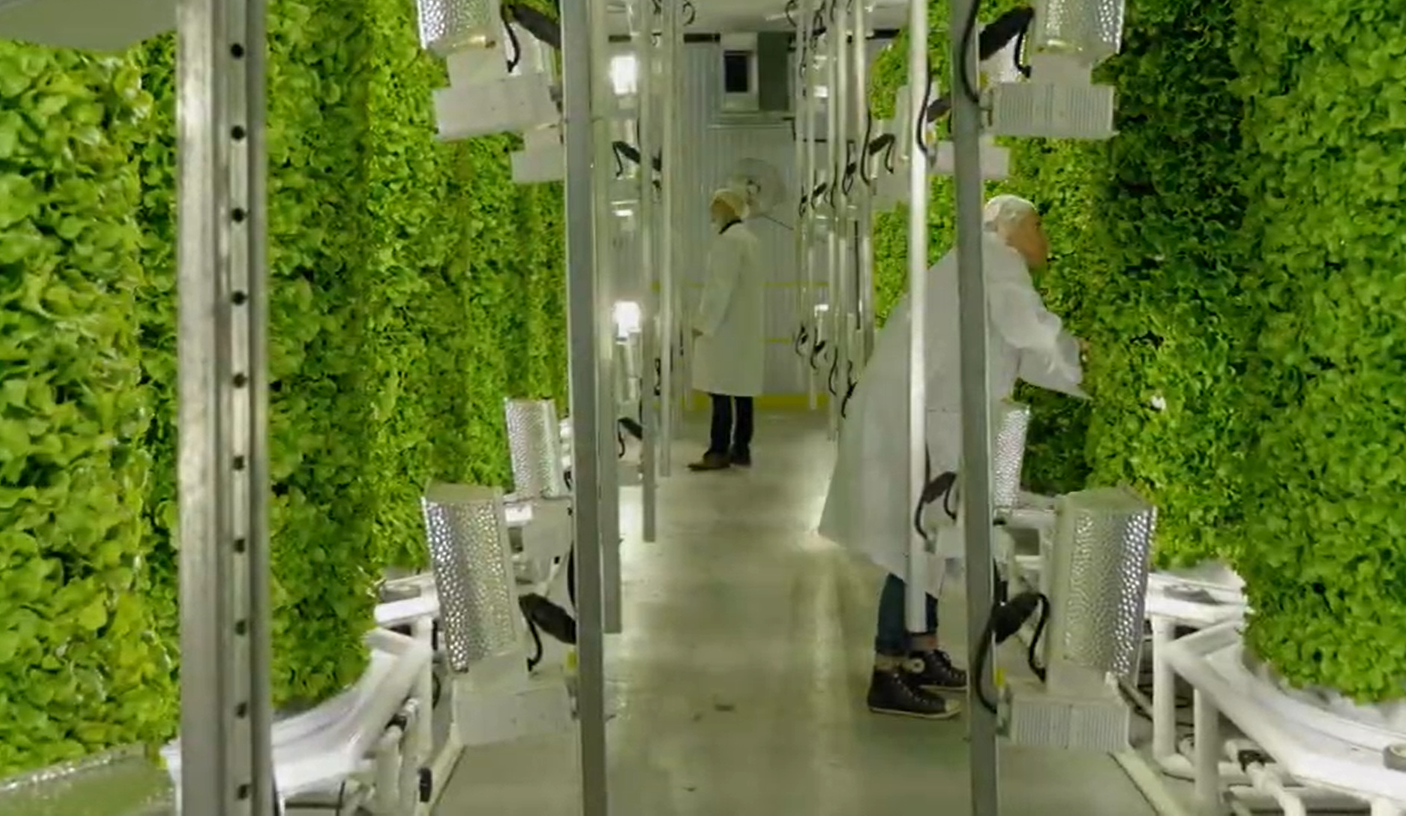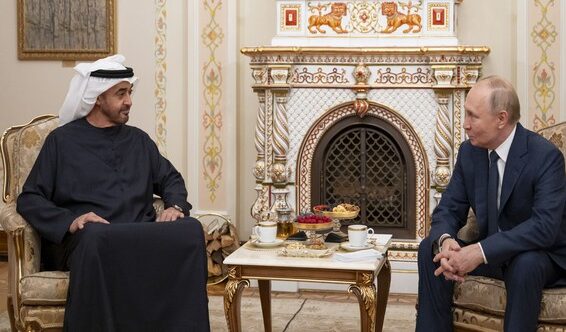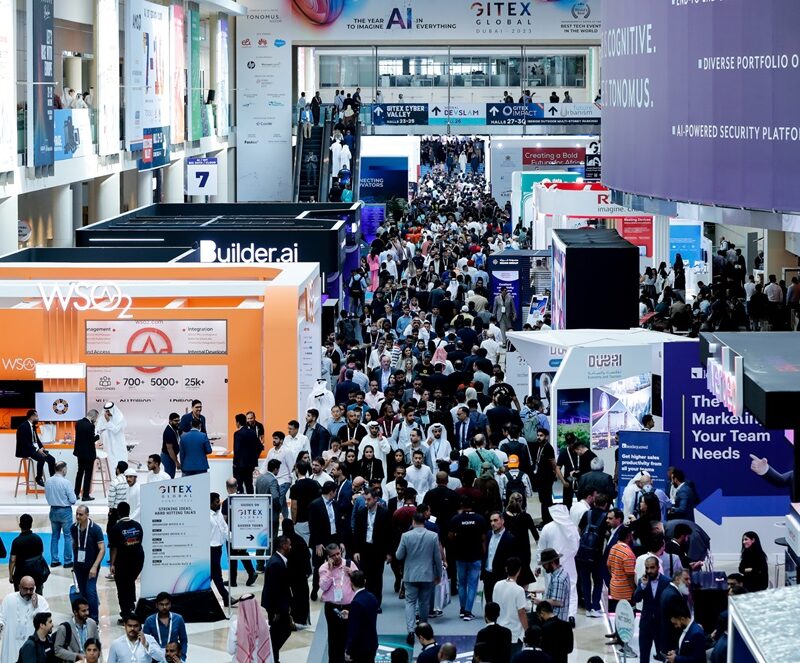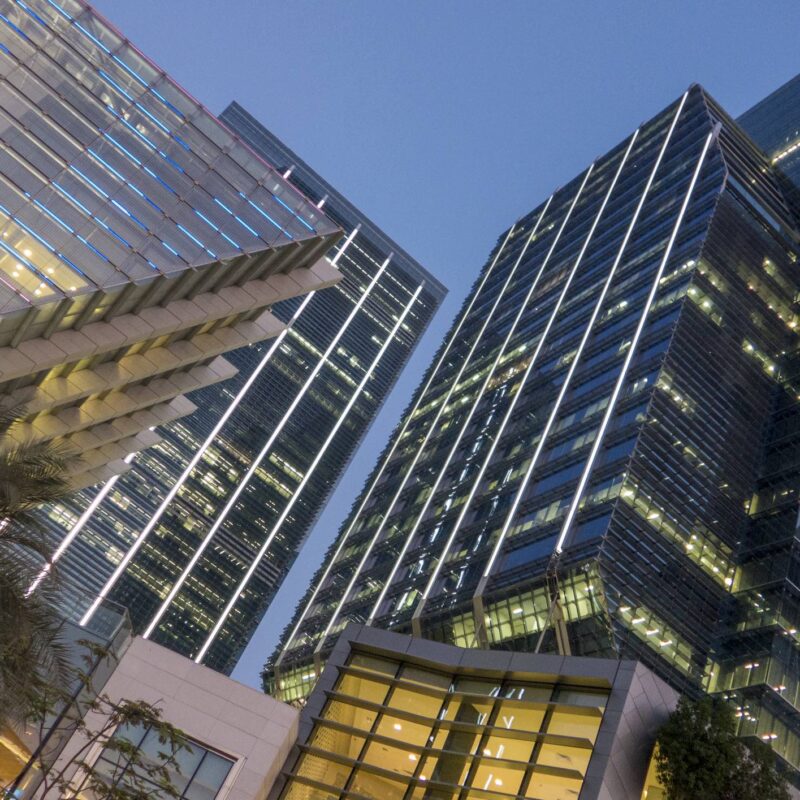
UAE incubator prepares startups led by women to confront desert
Dana venture platform backs a Moroccan vertical farmer, Israeli herbal pesticide maker and Gaza solar energy company from its headquarters in Abu Dhabi
ABU DHABI, United Arab Emirates — When Ghita Bahmad, a Moroccan-born researcher working on innovative ways to grow fruits and vegetables in the desert, needed to raise funds for her vertical-farming startup last year, she went to the Dubai Expo.
Bearing the name The Food Engineer, Bahmad’s Canada-based company uses a misting technique called “aeroponics” to grow walls of lettuce and herbs that require no soil and 95 percent less water than conventional farming. At an Expo networking event, Bahmad rubbed shoulders with a range of Middle East investors and emerged with backing from Dana, a business incubator launched two years ago that supports so-called “desert-tech” companies founded by women.
“We have made it our mission to install aeroponic growing systems all over the world,” Bahmad told The Circuit in an interview. “We contribute to the development of local know-how in urban horticulture and to the progress of countries towards food autonomy.”
Dana is among the young Middle East firms that have cropped up amid growing cooperation between the Gulf states and Israel, which culminated with the Abraham Accords in 2020. The three women who founded the business include an American, a Jewish Israeli and a Palestinian citizen of Israel. After a vetting process for early stage startups, the firm’s venture arm is prepared to invest between $350,000 and $1 million in the companies, in partnership with other funds and investors, co-founder Katie Wachsberger said. It expects to have about $25 million in capital and make its first investments in mid-2023, she said.
“At the end of the day, creating sustainable solutions for our region must be commercially viable,” said Wachsberger, 30, a native New Yorker who runs the Abu Dhabi headquarters as chief operating officer. “Otherwise, we can’t expect our economies to transform as they must toward carbon neutrality and food security.”
Companies currently working with Dana include Israel’s BioCloud, which produces an herbal pesticide used in cultivating medical marijuana and other greenhouse crops; SunBox, a solar-energy startup from the Gaza Strip; and Eco-Bricks, a maker of bricks recycled from construction sludge, which is based in the West Bank city of Hebron. Businesses from the UAE and Saudi Arabia are also connected with Dana, Wachsberger said.
Established in 2020, Dana is led by CEO Zada Haj, 28, who grew up in the Arab town of Kfar Yassif in northern Israel. The firm is named for her Palestinian mentor, Dana Salah, who died in a car accident while they were working together on a startup. Shirley Sahar is the company’s Tel Aviv-based chief strategy officer.
The firm’s investors include Joanne Wilson, owner of Gotham Gal Ventures, and Susan Danziger, founder of Eutopia Holdings. On its advisory board are Maha Al Fahim, co-founder of Abu Dhabi-based High Water Venture Partners; British social impact investor Sophia Swire; and David Sable, former CEO and chairman of global marketing firm Y&R.
As part of its desert-tech mandate, Dana works with companies that are involved in agriculture, water conservation, food security, waste management and renewable energy, Wachsberger said. Before investing, the firm supports young companies through its venture builder program, which includes mentorship, product advising, corporate design guidance, feasibility testing and business development.
In June, Dana signed an agreement with Masdar City to build a beta site in Abu Dhabi that will enable its companies to test their products in greenhouses, net houses and open farming plots. Masdar is a unit of Abu Dhabi’s sovereign wealth fund, Mubadala Investment Co.
Dana’s founders decided to make the UAE their base of operations because of its leading position in Middle East and world markets, Wachsberger explained. “It is the country leading the way in creating an ecosystem for innovation around sustainability and food security, specifically Abu Dhabi,” she said.
Dana’s core vision is of developing relationships in the Middle East and North Africa (MENA) region where the pressing issues of climate change and food security are addressed collaboratively, Wachsberger said. The founders believe those critical areas could become among the most profitable for investors and represent a great opportunity for women leaders.
“It is clear to us that women are not empowered until they are financially independent and influential in the private sector,” Wachsberger said. “We are continuously inspired by what female founders can do and are optimistic about what a women-led future for MENA will be like.”



